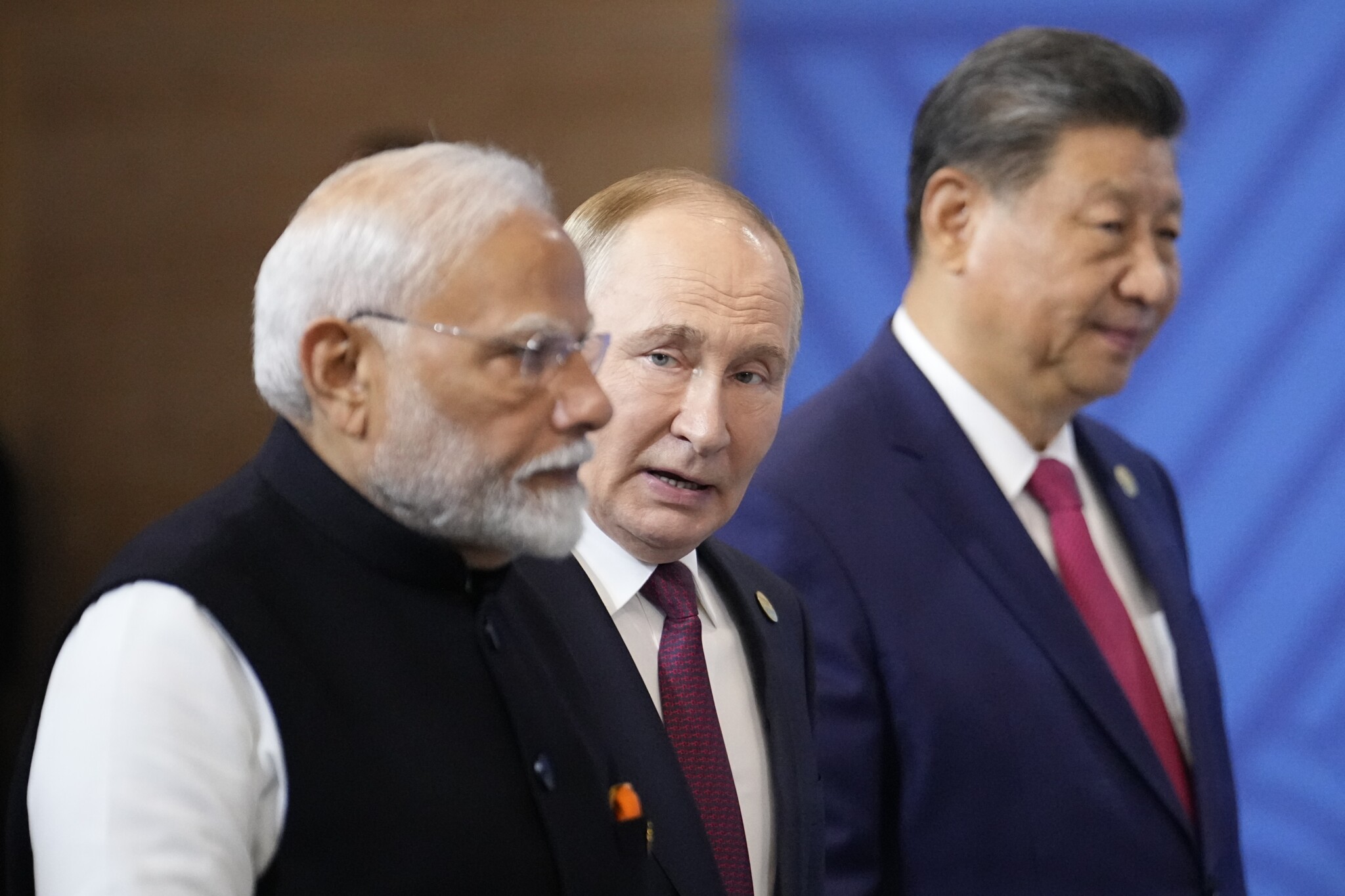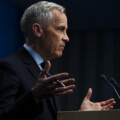The increasingly prominent story of foreign interference in Canada’s democracy grows bigger and stranger by the day. As the Hogue Inquiry continues to conduct its investigations, more and more reports of various state actors attempting to influence events and undermine our institutions are coming to light. From Chinese infiltration of our political processes to state-backed murders of Canadian citizens by Indian agents to Russian funding of prominent media influencers, the past year has revealed the troubling extent of the problem.
Late last week, the story grew even more dramatic. The Standing Committee on Public Safety and National Security (SECU) met once again to continue its inquiry into Russian interference and disinformation campaigns in Canada. Most Canadians have certainly overlooked these meetings, commencing over the course of the last month—until now.
During his testimony last Thursday, Chris Alexander, a former member of Parliament and Conservative minister in the Harper government, levied shocking allegations: he stated that a prominent Ottawa journalist was recruited by the KGB and has been working as a Russian asset for decades. Alexander stated he was in possession of evidence unearthed by Ukrainian intelligence sources that indicated the journalist, codenamed “Stuart,” has been working since the 1980s to undermine Canada’s national security and collective self-defence.
He stated that the declassified documents proving these allegations, which he tabled as evidence to the committee, had been pulled from a Ukrainian archive that contained files up until 1991, the date when the Soviet Union dissolved.
He claimed that they have been “authenticated by several of the world’s leading experts on KGB documents,” and that they are also now in the hands of Canadian national security officials.
The journalist, identified by Alexander as veteran Postmedia reporter David Pugliese, writes for the Ottawa Citizen on matters of national defence.
It must be stressed that the allegations are unproven. Pugliese, for his part, has strenuously denied them.
In an interview on the media podcast Canadaland, Pugliese said the allegations were a “total fabrication,” based on false documents. He claimed it was part of a smear campaign in reaction to his reporting on military procurement overspending, the misbehaviour of Canadian military officers, issues with charities created to support Ukraine, and alleged Nazi war criminals coming to Canada after the Second World War. Since the allegations were made, his employer Postmedia, colleagues, and the Canadian Association of Journalists have come out to support him.
“Essentially they’ve called me a traitor to the country. What’s my crime? Journalism?” he asked in the interview.
Alexander’s accusations are considered protected speech under Parliamentary privilege given that they were levied during committee testimony, meaning he cannot be sued for libel.
Whether or not the allegations in this specific case are true, what is undoubtedly the case is that Russia and other malicious state actors are attempting to interfere in our democracy, as the committee has endeavoured to show over the course of its inquiries. Russia in particular is not new to this. During the Cold War, Western journalists were a common target for recruitment by the Soviet intelligence services. They remain so for Vladimir Putin’s intelligence services to this day.
In the very same SECU meeting, Justin Ling, a freelance reporter, related a story where the Russian embassy press secretary tried to plant a story with him about Chrystia Freeland’s grandfather being a Nazi—even going as far as identifying the archives in Alberta where the information resided. Other witnesses have related similar stories over the course of SECU’s hearings.
Considering the structure of Canada’s media environment, this strategy of infiltration has significant benefits for foreign actors. Traditional media is in a state of collapse—as our Future of News series detailed last year, since 2010, 33 percent of Canadian journalism jobs have disappeared. The lack of capacity is particularly evident in the defence field, where there are now only two full-time reporters left on the beat. There were four only five years ago.
Non-traditional journalists operating on social media have risen to fill this gap. This has only created new opportunities for Moscow to infiltrate the information ecosystem of Western democracies. Just last month, the U.S. Justice Department unsealed an indictment of two Russians involved with funding Tenet Media, a new media firm that was founded by a conservative Canadian influencer and her husband and that supported a number of influential right-wing streamers, both Canadian and American. It is alleged that the Russian nationals set up the outlet as a front to push pro-Kremlin propaganda.
This reveals the value of recruiting journalists and new media influencers. In conducting its vital work as the fifth estate, the press is expected to be factual, but also critical and incisive in their investigative work. However, in any given instance, legitimate stories can on the surface be indistinguishable from ones with the intent to sow discord.
Journalists are also prime targets for recruitment by foreign intelligence because of their in-depth knowledge of a target area. As part of their day-to-day work, reporters intrinsically understand players, issues, and dynamics at play in a way that a foreign intelligence officer could rarely hope to accomplish. They are often provided with leaked information, including classified documents, to expose issues related to their beat—quite often material a foreign intelligence officer would be eager to see.
Perhaps more importantly, journalists are expected to develop a wide array of contacts among key positions across government and society. These networks are similarly valuable as sources of influence and information.
The recent claims of potential media manipulation testified to in the SECU hearings represent the possible scope of foreign threats to our collective security.
To date, most of the focus of the foreign interference story has been centred on the targeting of parliamentarians. But there is no reason to think that these malicious foreign actors would limit their influence campaigns to elected officials. What the testimony given at the SECU hearings has emphasized is that all of our democratic and civil institutions are under threat, and one does not have to be a political figure to be a target.
One of the great strengths of the Canadian system is that we are all entrusted with the freedom and responsibility of being nation-builders. The obvious corollary to this, then, is that we are also all at risk of targeted pressure or manipulation from those who wish us harm.
Whether as a journalist, a business owner, or a community leader, we must all be aware of how Russia or China or Iran or any of our other adversaries might be trying to use us as individuals to discredit the project of Canada as a whole. After all, it is our patriotic duty to “stand on guard for thee.” It’s not often that we hear that message reinforced. It should be. It’s time as Canadian citizens to truly internalize and live by what that means.











